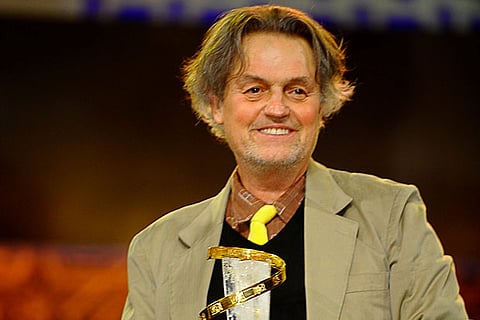

Chennai
Demme leaves behind in his wake not just a few mightily memorable films, but also an enduring legacy rooted in tolerance, diversity and above all, humanity. His passing, like that of his contemporary Mike Nichols (in 2014), brought to memory a heartening connection that their films shared, something that will be touched upon later in this article.
Demme is known the world over for helming the nail-biting psychological thriller Silence…, a film that garnered him Oscars for Best Picture and Director, adapted screenplay and its stars Anthony Hopkins and Jodie Foster, the top acting honours for their unforgettable roles as Dr Hannibal ‘The Cannibal’ Lecter and rookie FBI agent Clarice Starling, who is entrusted with solving a series of murders with help from Lecter. Volumes have been written in high praise of the film, which is among the stellar few that have swept all top categories at the Academy Awards.
However, the films in which Demme’s vision literally transcended the silver screen and made participants of its audiences were the powerhouse courtroom drama Philadelphia and a little-known indie, shot on digital, Anne-Hathaway starrer Rachel Getting Married.
The former, stars Tom Hanks, as an ambitious lawyer, Andrew Beckett (Andy) infected with AIDS who gets booted out of his law firm owing to his condition, and Denzel Washington as lawyer Joe Miller, who takes on Andy’s case and files a lawsuit against his company for discriminating with Andy on basis of his illness.
It is worth noting that Philadelphia, which is partially based on a true story, is one of the very first mainstream Hollywood films that in unflinching terms, addressed the AIDS epidemic gripping America, igniting a socio-political discourse, that set the stage for a sea-change in attitudes towards those living with HIV. The stigma attached to Andy’s ailment and how he is ostracised, even by the homophobic Miller, to start with, held a mirror up to American society, from which it was hard to look away.
Close to the end of the film, when Andy is called upon to testify in the witness stand in the courtroom, his body is reduced to a shadow of its former self as the all-consuming ailment devours Andy bit by bit. But his spirit is unshaken and unbroken as Miller, sans prejudice, asks him, “What do you love about the law, Andrew?” And Andy says, “Many things. What I love the most about the law, it’s that every now and again – not often, but occasionally – you get to be a part of justice being done. That really is quite a thrill when that happens.” It’s an utterly devastating scene that hurts for all the right reasons – thanks to a directorial vision that makes the audience complicit in all the proceedings.
Here’s where the connection shared by Jonathan Demme and Mike Nichols comes in. Nichols is the legendary filmmaker behind classics such as The Graduate, laugh-a-thons like The Birdcage and heartbreakers like Closer. Nichols also happened to be the director of the HBO-adaptation of Angels in America (2003), a cinematic, but televised reimagination of American playwright Tony Kushner’s Tony Award winning Broadway musical of the same name. Interestingly, Kushner’s play, a high-on imagination, hyper-stylised political exploration of the AIDS crisis and homosexuality in the Reagan era, debuted a few months before the release of Philadelphia in 1993, exactly a decade before Nichols adapted it into the mini-series.
The broad range of themes tackled by the two directors have gone a long way in realigning our perspectives about those society considered on the fringe. And we are richer for having lived in a generation that witnessed such zeitgeists, born from the womb of artistic expression.
Visit news.dtnext.in to explore our interactive epaper!
Download the DT Next app for more exciting features!
Click here for iOS
Click here for Android